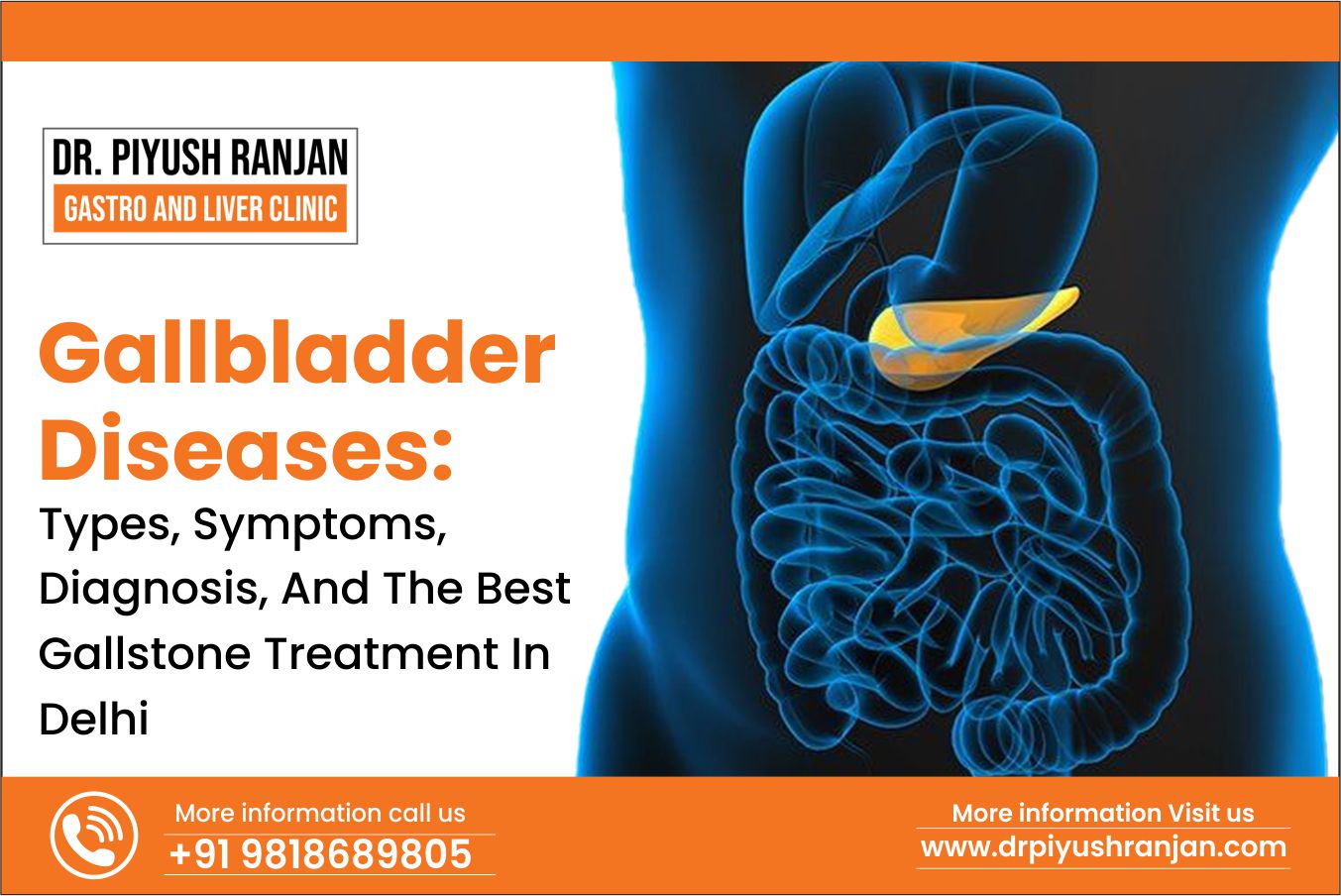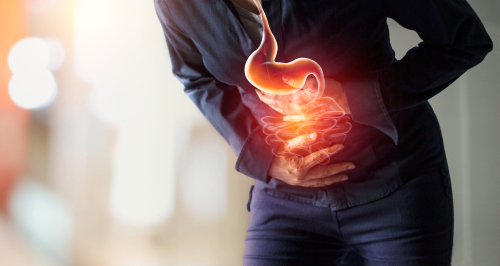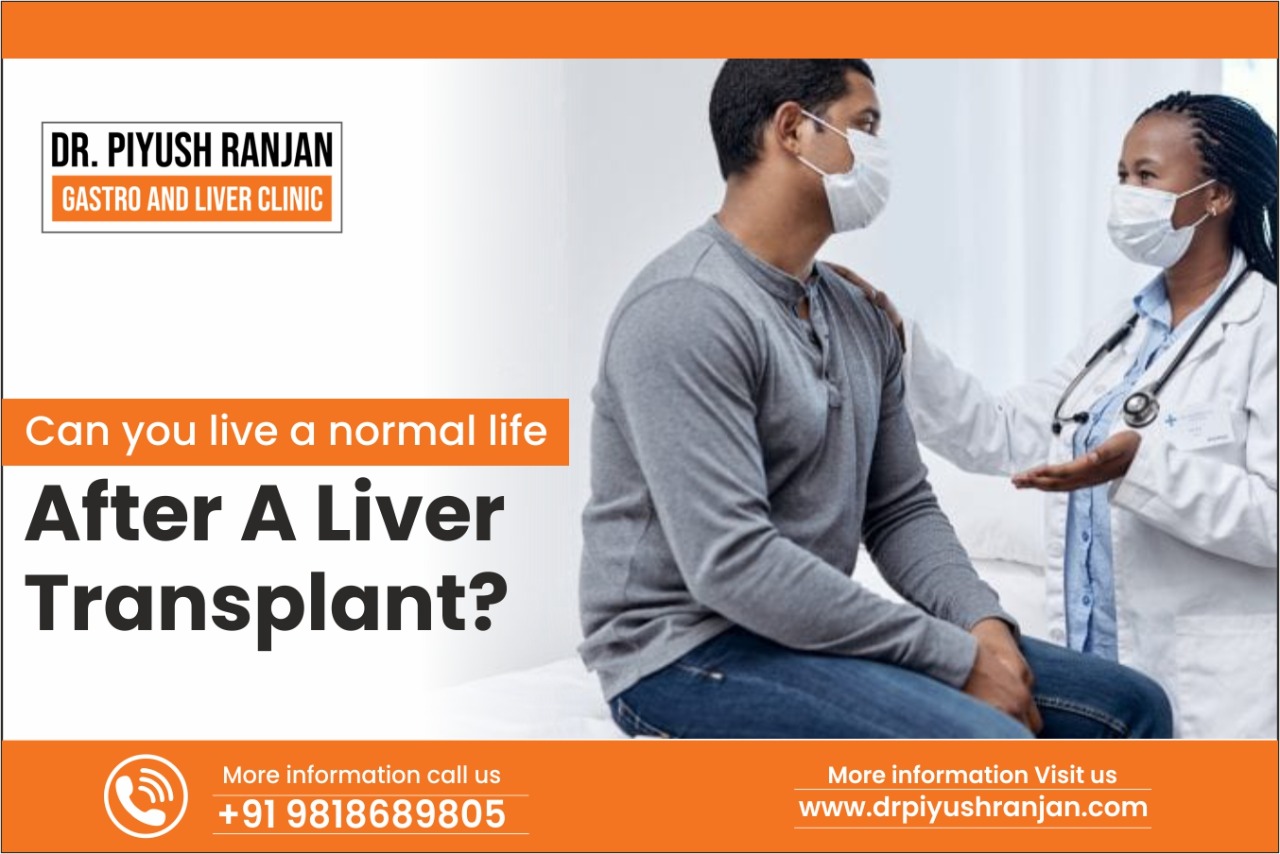Gallbladder Diseases: Types, Symptoms, Diagnosis, And The Best Gallstone Treatment In Delhi
The gallbladder is a small pear-shaped organ located right below the liver that plays a vital role in the digestive process. This tiny sac stores and concentrates the bile juice produced by the liver and empties itself into the upper part of the small intestine via the bile duct. Bile juice is responsible for the digestion of fats in the small intestine.
Table Of Content
- What Are The Types Of Gallbladder Diseases?
- What Are The Symptoms Of Gallbladder Diseases?
- What Does The Gallbladder Diagnosis Involve?
- How Are Gallbladder Diseases Treated?
- The Bottom Line
Gallbladder infections or diseases can impair the efficient functioning of this organ. Hence, it is important to know the types and symptoms of the possible problems so that you can get proper treatment without any complications.
The article below follows a detailed account of gallbladder diseases. Read on to know more about their types, symptoms, causes, treatment options, and where you can get the best gallstone treatment in Delhi.
What Are The Types Of Gallbladder Diseases?
Gallbladder diseases mainly include infection, inflammation, gallstones, or bile duct blockage. However, if left untreated, they could give rise to several other conditions as well.
Below mentioned are the common diseases of the gallbladder:
1. Gallstones
Too much-undissolved cholesterol in the bile or high bilirubin content in the blood can lead to the formation of gallstones. These hardened structures could grow in size inside the gallbladder or obstruct the bile duct.
2. Cholecystitis
It refers to gallbladder inflammation that could be acute or chronic. Gallstones often cause acute inflammation, while chronic inflammation could result from an untreated infection or an underlying disease.
3. Gallbladder Infection
If your gallbladder becomes infected with bacteria or viruses, it could cause other issues like inflammation and elicit symptoms.
4. Choledocholithiasis
This refers to the blockage of the bile duct by gallstones or some abnormal growth. It often also leads to inflammation and, if left untreated for long, could cause necrosis (untimely cell death). Choledocholithiasis is characterized by extreme pain in the upper right abdomen, usually after eating, fevers, chills, and sometimes jaundice.
5. Chronic Acalculous Gallbladder Disease
This refers to the inflammation which disrupts the normal emptying ability of the gallbladder.
6. Biliary Dyskinesia
This condition reduces the efficiency of the gallbladder. It often leads to bloating, nausea, and pain in the abdomen after meals.
7. Gangrenes or Abscesses
Gangrenes involve inadequate blood supply to the gallbladder and could also cause necrosis. Abscesses are pus-filled growths in the gallbladder tissues. Both gangrenes and abscesses can act as gallbladder infection causes and lead to other complications.
8. Congenital Defects
Structural defects in the gallbladder, like agenesis (incomplete or improper organ formation) and hypoplasia (inadequate tissue growth), can cause dysfunctioning of the organ. Its symptoms become noticeable during the early stages of life.
9. Abnormal Growths
Abnormal growth of cells in the gallbladder, like polyps or malignant tumors, can elicit gallbladder symptoms.
What Are The Symptoms Of Gallbladder Diseases?
The initial symptoms of gallbladder diseases are similar to those of other illnesses. Hence, it is easy to ignore them. However, being aware of the symptoms and carefully observing can help you seek treatment before the problem worsens.
Some Common Symptoms of Gallbladder Diseases Are:
- An intermittent steady or gripping pain in the upper right abdomen (biliary colic); it is a telltale gallbladder stone symptom
- Pain behind the breastbone
- Abdominal pain right after having meals
- Nausea
- Vomiting
- Jaundice
- Frequent bloating
What Does The Gallbladder Diagnosis Involve?
Gallbladder diagnosis involves a physical examination and medical tests. The doctor uses a combination of two or more of these tests to make the final diagnosis. It could involve:
- Physical Examination (Murphy’s Sign): The doctor places their hand right where your gallbladder is and asks you to inhale deeply. Any pain in the area indicates an issue.
- Blood Tests: These involve testing the level of factors like bilirubin in the blood.
- Imaging Tests: This could include x-rays, ultrasounds, or CT scans to visualize the gallbladder and detect any gallstones or growths.
- HIDA: It involves inserting a small camera into the liver and gallbladder duct system and analyzing the functioning of the gallbladder.
- ERCP: This invasive procedure is performed only when no other diagnosis can find the cause of gallbladder symptoms. The doctor inserts a tiny camera through the mouth into the upper small intestine and then injects a contrast dye into the bile duct system to study the functioning of the gallbladder.
How Are Gallbladder Diseases Treated?
Gallbladder diseases can be managed by paying attention to the symptoms and getting professional help. The best gallbladder disease treatment options include:
1. Lifestyle Changes
If the issue is in the early stage, managing your diet and lifestyle might help reverse the disease. Consult with your doctor about your diet and exercise routine. Undergoing steady weight loss often has a positive effect on the treatment process.
2. Medications
You can take over-the-counter medications to help relieve the pain and nausea. Doctors often recommend medicines containing codeine or hydrocodone for the pain. Avoid taking medicines containing ibuprofen or naproxen, as it could worsen your symptoms of nausea and vomiting.
3. Surgery
Doctors opt for surgery when medications cannot handle the condition. Depending on the issue, the surgery could involve completely removing the gallbladder (cholecystectomy) or cutting a part of the bile duct.
The Bottom Line
Gallbladder diseases are often difficult to detect. Hence, knowing about the possible symptoms and getting early medical attention can help you prevent any complications and recover quickly.
Dr. Piyush Ranjan is a renowned expert in providing gastrointestinal treatments. He excels in procedures like cholecystectomy, colonoscopy, endoscopy, ERCP, and others. With training from some of the best medical institutions and years of firsthand experience in providing the best treatments, Dr. Piyush Ranjan is among the most trusted service providers in his field.
To get the best gall stone treatment in Delhi, you can visit Dr. Piyush Ranjan or book an appointment by reaching out to us at @98-186-89805.




